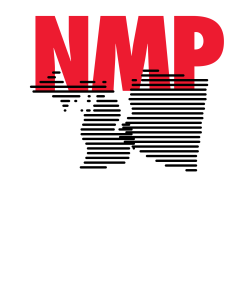Genre: Poetry
Poetry Prize
Small Press Points: New Michigan Press

“Take pleasure in publishing work you love,” says Ander Monson, founder of New Michigan Press. Steered by this guidance and a taste for the off-kilter, the press has produced chapbooks and the magazine Diagram for over twenty years.
Colorado Prize for Poetry
Nina Riggs Poetry Award
The Definition of Poetry: An Interview With Mosab Abu Toha

For Mosab Abu Toha, whose entire life and body of work, including his new collection, Forest of Noise, have been shaped by war, poetry is a way for all of us to document, to try to understand, and to act in times of suffering.
Falling
“One by one, like leaves from a tree, / All my faiths have forsaken me; / But the stars above my head / Burn in white and delicate red, / And beneath my feet the earth / Brings the sturdy grass to birth,” begins Sara Teasdale’s 1915 poem “Leaves.” Write a poem that uses rhythm and meter to evoke the feeling of the autumn season and describes the sights and sounds of the natural environment drying and withering, beginning the descent to decomposition. You might use this as an opportunity to ruminate on the larger themes of slowing down, and cycles of renewal and decay. Pay particular attention to consonance, short and long vowel sounds, and the length of your words and lines to create the desired tone of your poem.
2024 Jackson Poetry Prize Reading: Fady Joudah
In this Poets & Writers event, 2024 Jackson Poetry Prize winner Fady Joudah reads a selection of poems, including from his National Book Award–nominated collection, [...] (Milkweed Editions, 2024), and joins Pádraig Ó Tuama for a conversation about his work and life as a poet.
Ode to Style
In a recent piece published on Literary Hub highlighting responses from writers and editors on their appreciation for The Chicago Manual of Style, book editor Barbara Clark muses on the poetry found within the guidebook. “When I looked up something in the manual, I saw poems in their purest form. Open to a page at random, and find a poem there,” says Clark. “Fused participles! Who can imagine such a thing?” Taking inspiration from grammar-related terms and phrases, compose a poem that plays with an open interpretation of the words involved, bringing these concepts beyond language usage and into a more personal or philosophical context. Can you locate a sort of soul or lyrical beauty within organization and categorization?
Hanif Abdurraqib on Intimacy and Connection
“My writing is intimate and personal, but it’s also attempting to broaden the scope of what intimacy can be.” In this short video, Hanif Abdurraqib, a recipient of the 2024 Windham Campbell Prize in nonfiction, speaks about how writing about the things he loves has guided his work.






